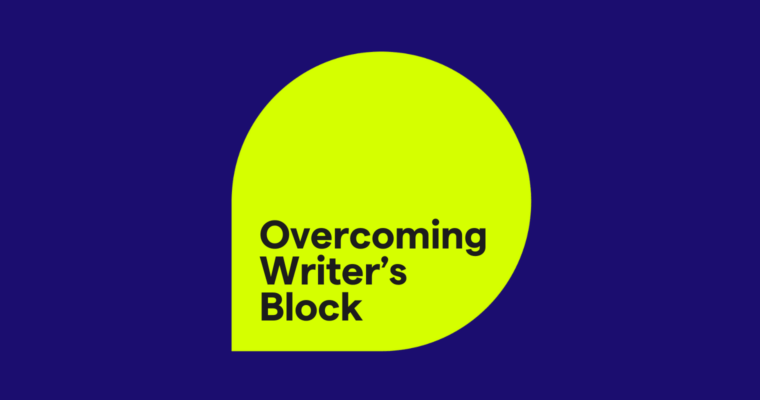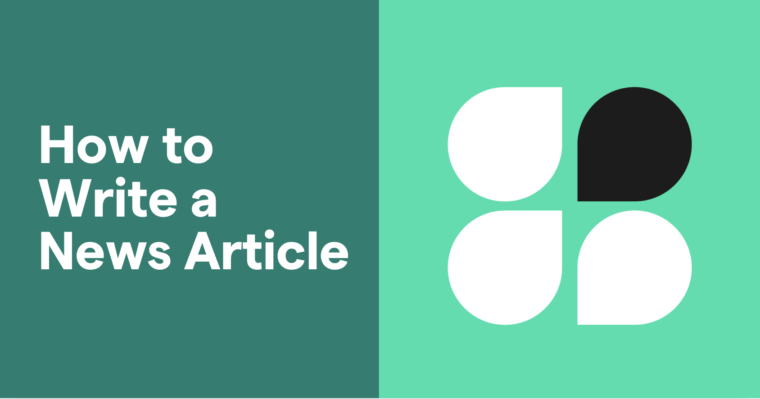
- Other ways to say thank you include: “Thanks a ton” or “You’re the best” in informal settings, “Thank you kindly” or “My sincerest thanks” in formal settings, and “I’m truly grateful” when you want to express heartfelt gratitude.
- A thank you message is a verbal or written expression of appreciation for a kind or helpful act.
- Saying “Thank you” strengthens relationships, fosters goodwill, and leaves a lasting positive impression.
- Choosing the right way to say “Thank you” ensures your gratitude comes across as sincere, appropriate for the context, and meaningful to the recipient.
- Personalizing your thank you message by specifying what you appreciate can make it more heartfelt and memorable.
When expressing gratitude, take a moment to choose the best way to say thank you, as this can significantly impact how your message is received. Here, we’ll discuss what a thank you message is, when to send one, and 30 alternative ways to show your appreciation.
Table of contents
When to send a thank you message
Informal ways to say “Thank you so much”
Formal ways to say “Thank you so much”
Other ways to say “Thank you” FAQs
What is a thank you message?
A thank you message is a verbal or written message that expresses appreciation toward someone who has done something kind, helpful, or meaningful for the message’s sender.
These messages can be heartfelt and emotional, cheery and simple, or straightforward and professional. You can send a thank you message via email or text, in a letter, or on a postcard.
Whichever medium you choose, writing a thank you message is a simple but powerful way to leave a good impression. And if you find yourself on the receiving end of a thank you message, here are some creative ways to say “You’re welcome.”
Keep in mind that how you phrase your message is just as important as when you send it, especially in formal versus informal settings. Some common phrases, like “Thank you in advance,” can undermine your message because they seem loaded in certain situations. Other phrases, like “You’re a lifesaver,” are appropriate in casual circumstances but may seem hyperbolic in professional communication.
When to send a thank you message
Sending a thank you message is appropriate whenever you want to express gratitude for a kind or helpful gesture. Here’s when sending a thank you message is most common.
1 After receiving a gift
When you receive a thoughtful gift, thank the giver as soon as possible.
2 After an act of kindness
Acknowledge that someone helped you by lending a hand, sharing advice, or otherwise making your life easier.
3 Following an interview or networking event
Following up after a professional interaction with brief thank you messages helps show appreciation for others’ time, leave a good impression, and strengthen future professional relationships.
4 After a meeting or collaboration
A thank you message to a colleague or collaborator recognizes their effort and expresses gratitude for their work.
5 Special occasions
Thank your guests for celebrating milestones like weddings, anniversaries, and graduations with you.
6 After a service or transaction
Expressing gratitude to a service provider or vendor acknowledges their effort and helps build strong professional relationships.
7 After receiving valuable feedback
Express gratitude for constructive feedback by recognizing its impact and how it has helped you improve.
Informal ways to say “Thank you so much”
Informal thank yous are perfect for friends, family, and close colleagues. Depending on the relationship, these expressions can be fun, casual, or heartfelt. They’re usually concise and get right to the thank you without much (or any) buildup.
Like all other informal communication, informal thank you messages use a conversational, expressive tone. Think of the type of language you use in everyday conversations and text messages rather than emails to your boss.
Here are 15 informal ways to say “Thank you so much.”
1 Thanks a ton
As a playful, friendly phrase, this expresses gratitude for a significant effort.
2 You’re a lifesaver
This phrase expresses gratitude for quick thinking and other helpful or heroic acts.
3 Cheers
This expression is a casual and versatile way to show thanks, commonly used in friendly, informal settings.
4 You rock
This energetic and morale-boosting phrase expresses gratitude by directly praising the person you’re thanking.
5 I owe you one
Using this phrase is a friendly and reciprocal way to acknowledge someone’s help and imply that you intend to return the favor in the future.
6 You’re the best
This phrase conveys deep appreciation by recognizing someone’s kindness, effort, or reliability, making them feel valued and acknowledged for their support.
7 Thanks a million
This expressive phrase adds extra emphasis to your gratitude, making it clear that you deeply appreciate the person’s help, kindness, or generosity.
8 Big thanks
A short, friendly, and casual way to express gratitude, this phrase is perfect for everyday situations where you want to acknowledge someone warmly and informally.
9 I’m so grateful
This phrase adds warmth and sincerity to your thank you, making it especially meaningful when expressing deep appreciation for someone’s time, effort, or kindness.
10 Couldn’t have done it without you
This phrase highlights the recipient’s crucial role in your success or achievement, making them feel valued for their support, effort, or contribution.
11 You saved my day
Use this phrase to express deep gratitude when someone’s actions have made a crucial difference, whether by solving a problem, offering timely help, or easing a stressful situation.
12 Thanks for everything
Use this phrase to express deep appreciation for multiple acts of kindness, especially when someone’s contributions have been significant or ongoing.
13 I can’t thank you enough
This expression conveys deep gratitude, emphasizing that mere words are not enough to show your appreciation when someone has gone above and beyond to help.
14 My warmest thanks
This gracious and heartfelt phrase conveys deep appreciation in a warm yet polished manner, making it suitable for both personal and professional expressions of gratitude.
15 Many thanks
This straightforward yet slightly more expressive alternative to “thanks” conveys a deeper sense of appreciation while remaining simple and polite.
Formal ways to say “Thank you so much”
In academic, professional, and other formal settings, your thank you message should use a formal tone. These settings include job interviews, meetings, and applications.
Formal thank yous are often longer than informal ones but don’t always need to be. A brief, straight-to-the-point expression of gratitude is effective no matter who you’re thanking.
Here are 15 formal ways to say “Thank you so much.”
1 Thank you kindly
A polite and slightly formal expression of gratitude, this expression conveys warmth and respect, making it well-suited for professional interactions.
2 Much obliged
Slightly old-fashioned yet still widely understood, this phrase conveys deep appreciation in a polite and formal manner.
3 I sincerely appreciate your [specific contribution]
Acknowledging a specific contribution or action makes your gratitude feel personal and professional, making this phrase highly versatile. In professional settings, it can highlight appreciation for communication, feedback, input, or project involvement.
4 I am deeply grateful
This phrase conveys profound appreciation and sincerity, making it ideal for expressing heartfelt thanks in both personal and professional settings.
5 My utmost gratitude
This formal expression conveys a deep appreciation for significant efforts, guidance, or support, making it ideal for professional, academic, or formal settings where sincere acknowledgment is needed.
6 I am forever grateful
This phrase conveys deep, lasting appreciation for significant acts of kindness, support, or mentorship, emphasizing the enduring impact of the person’s generosity.
7 Thank you for your consideration
This phrase is commonly used to close an application, proposal, or request. It shows appreciation for the recipient’s time and thoughtful review, regardless of the outcome.
8 With my deepest thanks
This formal phrase expresses sincere and profound gratitude and is suitable for professional or personal settings.
9 I extend my heartfelt thanks
This phrase adds an emotional touch and conveys deep appreciation with a formal yet warm tone.
10 I truly value your [specific input]
This phrase acknowledges the recipient’s effort, expertise, or contribution, making your gratitude more personal and meaningful.
11 With gratitude
A refined and professional way to end a message, this phrase is ideal for formal emails, letters, and acknowledgments.
12 My sincerest thanks
This phrase conveys genuine gratitude in a formal and respectful tone.
13 I greatly appreciate it
This phrase balances professionalism and sincerity, making it a versatile choice for formal settings where you want to express genuine gratitude while maintaining a respectful tone.
14 With appreciation
This polished and professional phrase is often used as a sign-off to express sincere gratitude, making it a thoughtful way to close a message with warmth and respect.
15 I appreciate your dedication
This phrase acknowledges someone’s commitment and ongoing efforts, making it an excellent choice for a professional thank you message.
Other ways to say “Thank you” FAQs
Are there other ways to say “Thank you”?
There are many ways to express gratitude, ranging from casual to formal. Informal options include “Thanks a ton,” “You rock,” or “Cheers,” while formal choices like “I sincerely appreciate your time,” “With my deepest thanks,” or “Much obliged” convey professionalism and respect. The right choice depends on the context.
When is a formal thank you appropriate?
Formal thank yous are ideal for professional or academic settings, such as after a job interview, during business correspondence, or when thanking a mentor or colleague.
How can you make a thank you message more personal?
Be specific. Mention the act, gift, or assistance you’re grateful for, and explain why it meant so much to you. Personalizing your message adds sincerity and warmth.
What’s the best way to send a thank you message?
This depends on the context. Use email for professional or quick notes, handwritten cards for heartfelt occasions, and texts for casual, informal gratitude.
Can you say thank you without using the words “Thank you”?
Yes! Phrases like “You’re a lifesaver,” “Much obliged,” or “I owe you one” are great alternatives that still convey appreciation.






